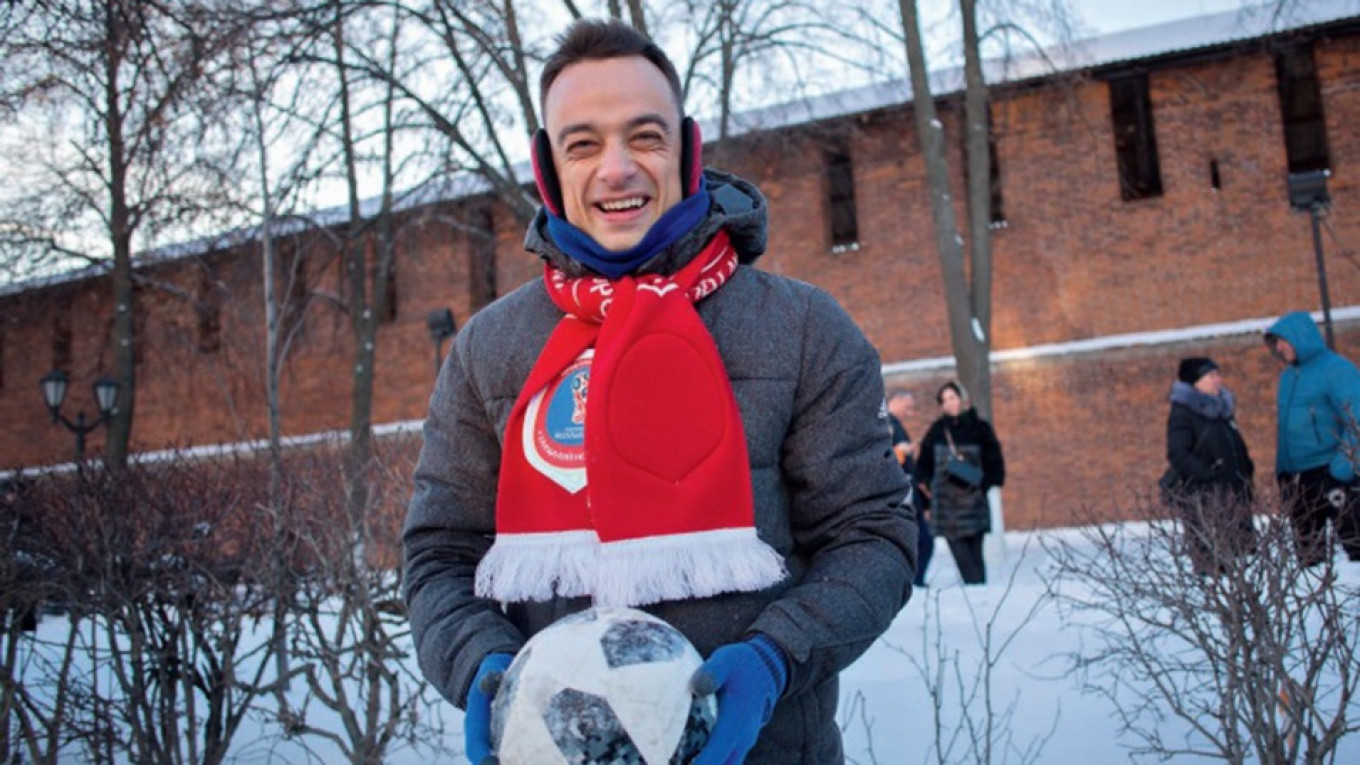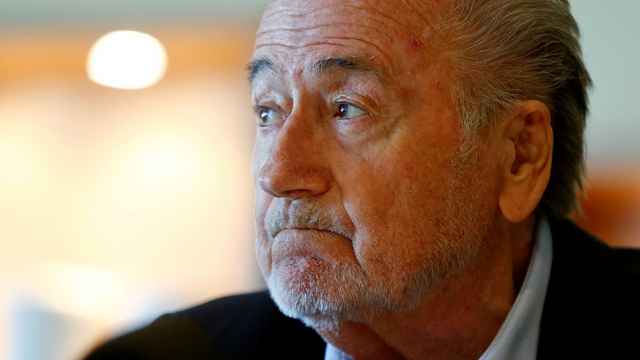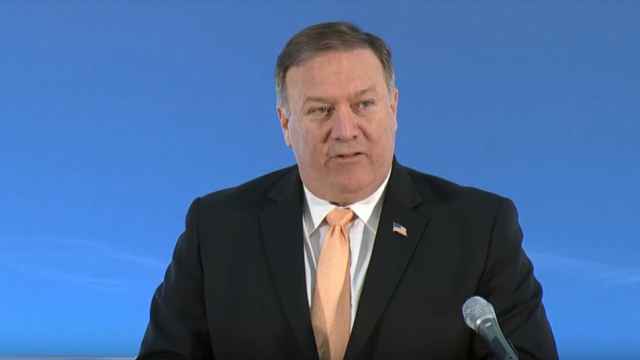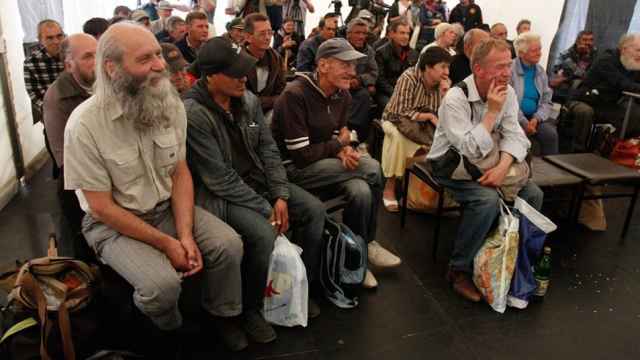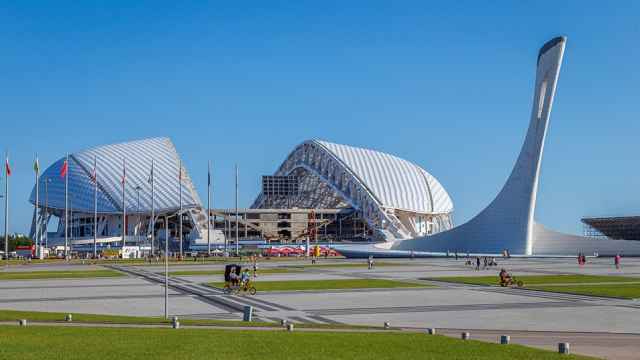When Georgy Cherdantsev takes his place in the commentary booth, he is not just thinking about the game at hand. Before his matches, Cherdantsev is like an actor readying to take the stage. He is preparing to deliver a theatrical performance.
The disparate styles of football commentators around the world offer a window into the cultures they represent. Latin Americans, for example, have gained a reputation for being loud and passionate, with their trademark minute-long cries of “goaaaaal,” while English commentators are reserved and, at times, almost impartial.
For Cherdantsev, a commentator at Match TV and one of the most recognizable voices in Russian football of the past 20 years, the country’s commentating tradition is distinguished by patriotism and a certain theatrical quality.
“The presentation, the way you describe the game and bring a sense of gravitas and emotion to the big moments through your voice — that’s always been an important part of our country’s commentary tradition, since the days of the Soviet Union,” he said.
Before the fall of the Soviet Union in 1991, there were just two state-owned television channels. Football matches outside of the World Cup were only occasionally televised, and the practice of having specialized football commentators was uncommon. Instead, those asked to commentate on sport were typically actors, such as Nikolai Ozerov, who brought their theatrical approach to the job, in addition to observations and opinions on the world around them — an intellectual tradition that persists in Russia to this day.
“It’s very much a Russian cultural thing — trying to explore the depth of the human soul,” said fellow Match TV football commentator Timur Zhuravel. “This shapes the way we cover football — sometimes getting distracted from the action itself to discuss extraneous things, which can also develop into arrogance. Some Russian commentators actually think they are the focal point of the match.”
This approach contrasts with television coverage in other countries, where commentators tend to follow the ball and describe the flow of the match. Cherdantsev describes that style as somewhat robotic.
“They remind me of the voices in the FIFA video game, where you have 20,000 pre-recorded phrases and the computer selects the appropriate ones,” Cherdantsev said. “Commentating in Russia requires more thought. Russians are a philosophical people, we read a lot, we like to reflect on the meaning of life. The audience expects deep insights from their commentators — not just about the match in front of them, but also whether a certain player will be good in years to come or if the manager is tactically astute.”
The demand for expert opinion from commentators also stems from the fact that unlike in other countries, newspapers employ relatively few Russian sports journalists while television stations rarely use former players or managers as pundits. Zhuravel says that the latter is partly due to the poor pay on offer. Russian commentators earn around $58,000 a year, while star footballers are used to earning a similar sum in a single week. Former footballer players are also not deemed intellectual enough for the role, he said.
“We have tried to involve them but it wasn’t a good experience,” he said. “The big problem with ex-players is that their command of the Russian language is poor — they are tongue-tied and don’t really work on developing their vocabulary.”
But long and colorful musings can come with downsides. According to Cherdantsev, Russian commentators are sometimes so focused on giving detailed opinions that they can actually miss key moments in the game — like a goal being scored.
“It is a big problem,” he says. “I’ve seen my colleagues try to make a clever, philosophical observation about the game, and by the time they’ve finished their phrase, the ball has gone in the back of the net. This can happen because the Russian language is very complex and phrases have lengthy constructions. Things that you can say in one or two words in English take a long time to say in Russian.”
But above all, Russian commentators are expected to be patriotic, far more so than commentators from England, Germany or Spain. Even when the national team is playing poorly, criticism is usually kept to a minimum.
“We’re told that we should support the Russia team,” said Pavel Zanozin, a commentator at state-run Channel One. “The aim is to convey the most beautiful things about our team, its main strengths and to be happy when the team wins.”
A Message from The Moscow Times:
Dear readers,
We are facing unprecedented challenges. Russia's Prosecutor General's Office has designated The Moscow Times as an "undesirable" organization, criminalizing our work and putting our staff at risk of prosecution. This follows our earlier unjust labeling as a "foreign agent."
These actions are direct attempts to silence independent journalism in Russia. The authorities claim our work "discredits the decisions of the Russian leadership." We see things differently: we strive to provide accurate, unbiased reporting on Russia.
We, the journalists of The Moscow Times, refuse to be silenced. But to continue our work, we need your help.
Your support, no matter how small, makes a world of difference. If you can, please support us monthly starting from just $2. It's quick to set up, and every contribution makes a significant impact.
By supporting The Moscow Times, you're defending open, independent journalism in the face of repression. Thank you for standing with us.
Remind me later.


